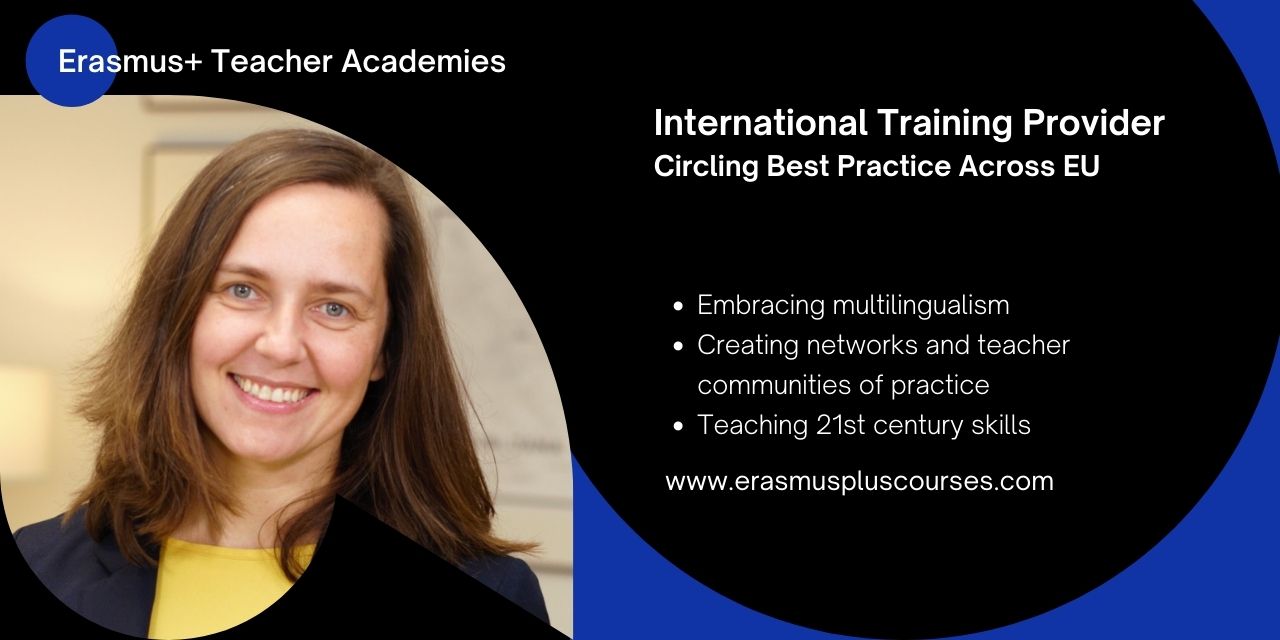|
International learning with its diversity is an irreplaceable experience for every teacher. It provides insights into different teaching practices across Europe. Thanks to international learning teachers are able to network with other teachers and bring international dimension to every single student.
Let's say you are a teacher in Croatia. You are committed to project-based learning. This evening you are drafting a new project based learning experience for your students. Topic: circular economy. Thanks to international learning experience you are able to create a project in which you include an entrepreneur from Italy who is making mushrooms out of coffee waste, an architect from Denmark who creates circular buildings, and a young student from France who is making beer out of bread. Sounds inspiring? Yes! Sounds impossible? Yes! Or not if your continuous professional development includes international learning. Such dreams are possible if training providers across Europe work together. Cooperate to support teachers in delivering real teaching for the 21st century where creativity and collaboration leads success. Erasmus+ Teacher Academies aims just that. Unite teacher training providers. Join forces to strengthen international learning for teachers. In Primera Courses and Step Institute we are strongly motivated to contribute to Erasmus+ Teacher Academies projects which will search for answers that are burning in our hearts for a long, long time. Let’s see some of the important questions and barriers that prevent teachers from fully benefiting from international learning within the Erasmus+ projects. We hope that Erasmus+ Teacher Academies in which we will participate as partners will bring answers. #1 Embracing multilingualism. Digitalization in education during pandemic is stronger than ever. So is the need of supporting teachers in digital and international endeavours. European Union alongside the teaching organizations community offers countless international learning opportunities for teachers. But those opportunities are not accessible to all teachers because of the language barrier. Most of the international learning opportunities are in English. Consequently, teachers with lack of English language skills resist participation in international learning or they cannot fully benefit from it. By answering to this gap more teachers will create projects as mentioned above as is the case with the circular economy. #2 Creating networks and communities of practice. If communities of practice are led top down, they tend to become slow. Consequently inactive and failing to support teachers. With digitalization we are able to create an agile teaching community with engaging international events on a regular basis. Agility allows us to answer quickly on all the initiations which come directly from teachers. With digitalization it is also easy to connect teachers and share their best practices. Collaborating this way is much more sustainable compared to collaboration which is alive only during the project lifetime. #3 Teaching 21st century skills. Initiative, creativity, collaboration, leadership, flexibility etc is impossible to teach isolated. Having a teacher who will bring international collaboration directly into a classroom is like cooking Chinese before going to China. It gives students a feeling of real life and it develops skills they will need in the future regardless of their choice of a career. Ready to innovate, share and engage. Erasmus+ Teacher Academies welcome! Contact us for partnership inquiries within Erasmus+ Teacher Academies: [email protected]. 2021 call deadline: 7 September. |
primeraWe empower teachers so they can do their job best. Categories
All
LINKSPrimera's practical handbook for writing high quality Erasmus+ mobility projects.
Pan-European Conference on Digital Education Facebook Community. Primera's FB page. Work with us on Erasmus+ KA2 projects: STEP Institute. |
Erasmus+ by Primera for teachersErasmus+ courses by Primera are dedicated to teachers who value evidence-based and practice-driven training in highly interactive international atmosphere.
OID Ljubljana: E10091479 OID Vienna: E10298896 E: [email protected] T: +386 1 320 28 43 Privacy Policy |
Navigation |
Stay tuned! |
© 2020 Skupina Primera Ltd. All rights reserved.



 RSS Feed
RSS Feed